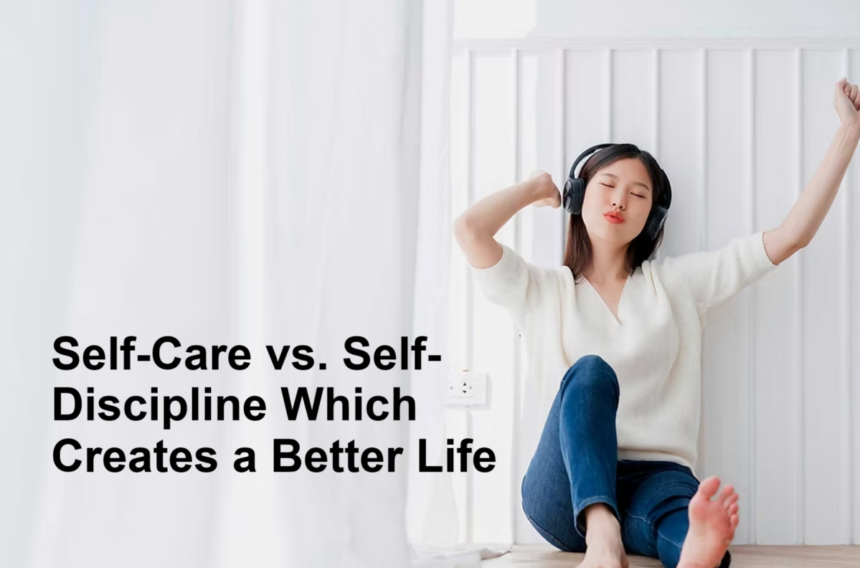In the pursuit of a fulfilling and successful life, two concepts often come into focus: self-care and self-discipline. While both are essential for personal growth and happiness, they are sometimes seen as opposing forces. Self-care emphasizes nurturing oneself, prioritizing relaxation, and attending to emotional needs. Conversely, self-discipline involves setting boundaries, maintaining routines, and pushing oneself toward goals. The question many ask is: Which of these approaches creates a better life? The answer isn’t purely black-and-white; instead, understanding how they complement each other can help you forge a balanced, meaningful existence.
The Power of Self-Care
Self-care is the foundation of mental, emotional, and physical well-being. It encompasses activities like getting enough sleep, eating nutritious food, exercising, practicing mindfulness, and taking time for hobbies. The underlying principle is that caring for oneself replenishes energy, reduces stress, and boosts resilience.
Studies have linked regular self-care practices to lower levels of anxiety and depression. When you take time to relax and recharge, you enhance your overall quality of life. For example, taking breaks from work to meditate or walk in nature can improve focus and reduce burnout. Regularly engaging in self-care fosters self-love and acceptance, essential components of a happy and balanced life.
However, some might argue that overindulgence in self-care—like frequent days off or procrastination—can lead to complacency, preventing achievement or growth. This is where the balance with self-discipline becomes crucial.
The Role of Self-Discipline
Self-discipline is about setting goals, creating routines, and exercising control over impulses. It’s what drives you to wake up early, stick to a workout plan, meet deadlines, and resist distractions. Discipline cultivates perseverance, resilience, and long-term success.
Without self-discipline, many struggle to achieve their ambitions, resulting in missed opportunities and unfulfilled potential. It’s especially essential when pursuing skills, education, or career advancement. Discipline fosters delayed gratification—foregoing immediate pleasures for future rewards.
Yet, an overemphasis on self-discipline can lead to burnout, stress, and neglect of one’s emotional needs. It can also create feelings of guilt when one fails to meet strict standards. Therefore, disciplined routines must be flexible and compassionate to sustain long-term well-being.
Finding the Balance
The key to a fulfilling life lies in integrating self-care and self-discipline rather than viewing them as mutually exclusive. They are two sides of the same coin, supporting and enhancing each other when balanced.
- Self-care fuels discipline: When you are physically rested and emotionally balanced, it’s easier to stay motivated and focused. Taking care of your body and mind equips you to stick to routines and overcome challenges.
- Discipline enhances self-care: Creating routines around sleep, nutrition, and exercise ensures these beneficial activities happen consistently, promoting overall health and longevity.
- Avoid extremes: Excessive self-care without discipline may lead to stagnation, while excessive discipline without self-care can cause burnout. Strive for moderation—schedule time for relaxation and productivity alike.
- Set realistic goals: Incorporate small, achievable acts of self-care and discipline into your daily life. For example, commit to 10 minutes of meditation or a short walk each day.
- Practice self-compassion: Be kind to yourself when setbacks occur. Recognize that both self-care and discipline require ongoing effort and adjustment.
Which Creates a Better Life?
Rather than choosing one over the other, consider how they work synergistically. A life that combines mindful self-care with disciplined effort can lead to greater happiness, productivity, and resilience. People who prioritize both often experience less stress, better health, and stronger relationships.
For example, a balanced individual might get enough sleep, eat healthily, exercise regularly, and pursue their goals diligently. This harmony fosters sustainable success and genuine fulfillment.
Conclusion
Self-care and self-discipline are not mutually exclusive but are essential partners in creating a good life. Prioritizing one over the other can lead to imbalance—either burnout or stagnation. The most effective approach is cultivating both: nurturing oneself while striving toward personal growth with discipline and purpose.
Ultimately, a life enriched by balanced self-care and disciplined effort is the most rewarding. By integrating these concepts thoughtfully, you can build a sustainable, joyful, and meaningful existence that stands the test of time.












